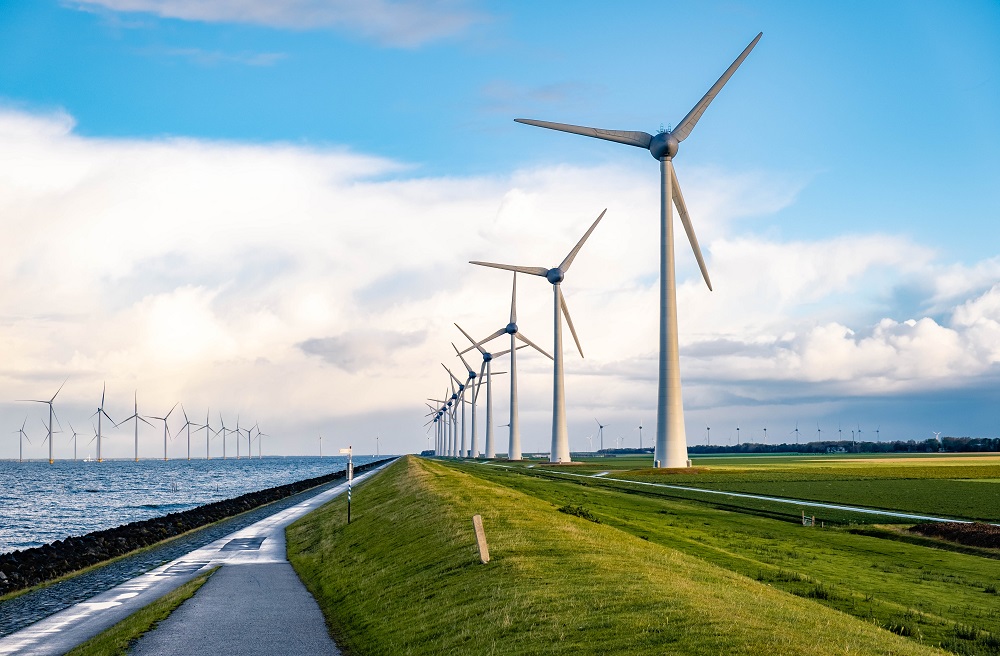Energy
The Netherlands aims to make significant strides in the next ten years to increase the production of renewable energy and stimulate the electrification of heat demand and mobility. This ambition requires a complete and highly complex transformation of the energy system. The fossil-based, centralized energy system is shifting to a decentralized system based on renewable energy. Algorithms and AI can make a significant difference in accelerating this transition and achieving an efficient and sustainable energy system.
In decisions related to the energy transition, such as investments in infrastructure or the placement of renewable sources, much depends on predictions, often based on limited data, and there are many different interests. New AI technology can support these investment and design questions by grounding them better in facts, considering multiple interests more effectively, and explaining the choices made and related uncertainties better. Developing the necessary technology offers the Netherlands a unique opportunity to lead internationally and export this technology.
Opportunities for a CO2-free energy system
There are also opportunities for AI in automating the operation of the energy system, supporting energy services, and predicting and automating maintenance. The opportunities and challenges for AI in this context are outlined in a position paper, "AI as an Accelerator of the Energy Transition: Opportunities for a CO2-free Energy System." This document serves as a guide for next steps and as a framework for opportunities and challenges we have yet to foresee.
Sustainability
The application of AI also offers opportunities to address other societal issues related to sustainability. For example, in health and care, education, agriculture and food, the technical industry, the built environment, safety, peace and justice, and the climate. In a separate workflow, we will map out which opportunities related to AI and sustainability are important to address in the Netherlands in the coming period. (Source: https://nlaic.com)

Eastern Netherlands
In Eastern Netherlands, companies, knowledge institutions, and governments are collaborating to accelerate the energy transition with innovations. The focus is on decentralized generation and storage of energy solutions. AI technology helps reduce large investments in energy networks, optimize energy supply reliability, and develop solutions that require less energy (Green IT and Sustainable Industries).
In Eastern Netherlands, we are working on the following ecosystems:
- Renewable Energy & Energy Efficiency
- Smart Energy
We build projects with entrepreneurs in Gelderland and Overijssel around themes such as the digitization of energy networks (Smart Grids), Green IT, Sustainable Industries (energy and resource consumption), and (safe) data sharing.
For the Energy & AI domain, Radboud University, the University of Twente, and the energy research groups of the Windesheim, Saxion, and HAN universities of applied sciences take on the coordination. Our partners include organizations like Kema Labs, Tennet, and Alliander, and initiatives such as Connectr and the kiEMT foundation. We invest in activities and technology companies that form a crossover with the energy sector. Key (test) locations in this area are Arnhems Buiten and IPKW (Arnhem).
An interesting project in this field is Smart Energy Hubs, an initiative of the province of Overijssel, the province of Gelderland, and Oost NL, which aims to realize 10 Smart Energy Hubs in Eastern Netherlands | Oost NL

ICAI Labs
ICAI is the Innovation Center for Artificial Intelligence. An ICAI Lab is a research collaboration between one or more industrial, governmental, or non-profit partners and one or more knowledge institutions. ICAI Labs focus on AI technology, are outward-facing, and are geared towards knowledge transfer. Within an ICAI Lab, at least 5 PhD students conduct research on a overarching topic. At Radboud University and Radboudumc, the following ICAI Lab has been established within the energy theme: AI for Energy Grids Lab.
























